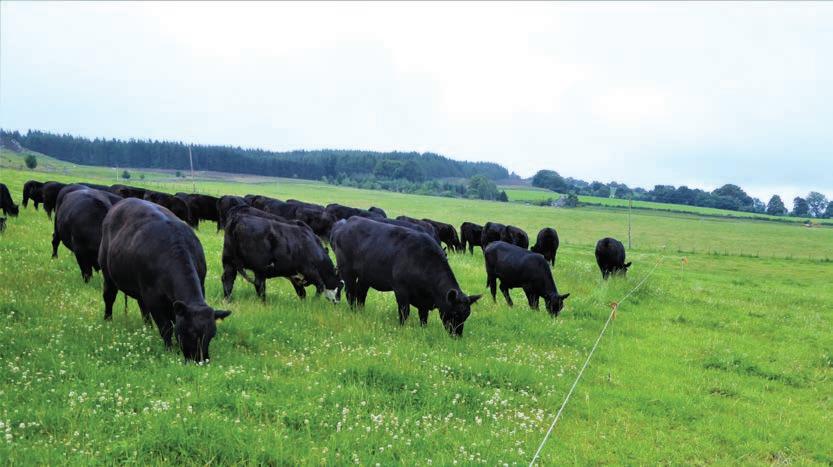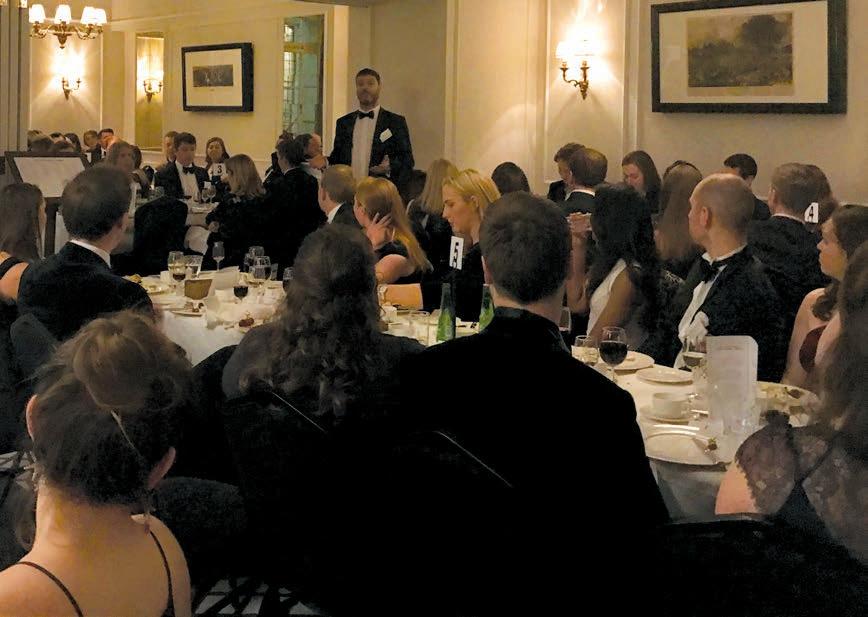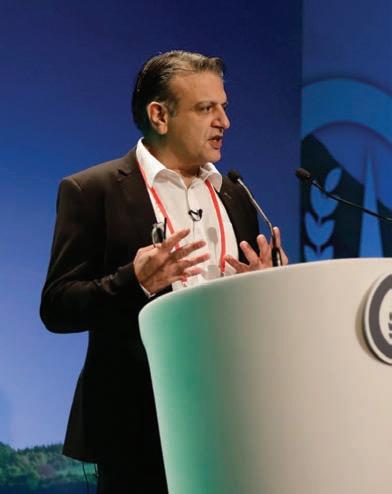
3 minute read
Livestock key to climate change solutions
has retail sales of £25m/year. “The technology is there to do it, and the general public wants us to do it. Consumers will reward innovation, they want sustainable.”
The plant-based foods revolution isn’t going away, and consumers want better animal welfare too, he says. “There is a degree of inertia in farming. But if we aren’t happy to change, we’ll be left behind. If we rely on Government, we will not move at the pace we need. But if we don’t innovate and do things differently Government will drive change.”
Red meat the saviour
Pasture and livestock have created the upland landscape for 1000s of years, so why question that system now, asks Alexander Brewster, a forwardthinking Scottish red meat farmer based in central Perthshire.
He farms 3000ha of mainly LFA farmland, with 300 breeding cows, 2200 ewes and a flock of 4000 organic laying hens for direct egg marketing, is director of Powered Pasture, an electric fencing and grassland management retail business, and has just completed a Nuffield Scholarship investigating the relevance of red meat in the 21st Century.
In 2018 he started building ecologically sustainable grazing platforms using a ‘total nutrition’ approach. “There are a couple of schools of thought on nutrition. One is the Moron approach: the more product you buy, the more you need, the more you use, the more you buy, the bigger the moron.”
The alternative is the ‘less on’ theory. Reflect on what it is, exactly, you are trying to achieve, and how the system is designed and how that design can evolve. In the hills the main driver is undoubtedly the herbivore, so adopting an ecosystem approach to producing pasture, using every microbe in every hectare to build organic matter, is key.
“We want the digesters, spreaders, aggregators, N-fixers, fungi and earthworms all working in
harmony to build organic matter. Healthier soils mean healthier plants and healthier animals.” And a healthier planet too.
“We can improve water-holding capacity by 250t/ha, pull in an extra 9t/ha of carbon and above every hectare on the planet is 80t of atmospheric nitrogen – and as a Scotsman, it’s all free, and that’s great.
“So is the herbivore the creator or the saviour of climate change? It’s time to turn this argument on its head. There’s no villains in this process, but there is an ignorance of its effectiveness.
“My job as a land manager is all about time management – we drop big mobs of cattle onto pasture to graze the best, trample the rest, and bring sheep in 30-40 days later when it is optimum for their rumen. It’s about stretching parasite windows, and moving away from drug reliance, but at the same time integrating genetics.”
NZ Omega Lamb
In New Zealand he saw efforts to breed healthier, more productive, more profitable, more resilient ewes, using Texel/Finn/Romney/Perendale crosses for raised levels of healthy omega-3 fatty acids. “It’s some of the finest lamb I’ve ever eaten – the veg was still on the plate when I left.” A similar approach to beef breeding makes sense.
Farmers can increase soil health and mineralisation, sequester and stabilise carbon to depth, increase water infiltration, and grow a greater diversity of species to increase photosynthetic capacity, the only true currency, so livestock can be fed at a higher plane of nutrition, to produce higher quality meat, to secure premium prices from discerning customers, he believes.


“In the 21st Century the relevance of red meat has never been greater. We need to manage for total ecological nutrition to grow a healthier society.”
MORE ON-LINE Jago Pearson and Alex Brewster spoke at Oxford Farming Conference 2020 www.ofc.org.uk/ conference/2020 www.finnebrogue. com www.powered pasture.co.uk
SHARE THE MESSAGE Communicating credible information about food products is key, notes Mr Pearson. “It’s why we are working with universities to establish our case and communicate it.”
HAVE YOUR SAY Share your views on the role of meat/dairy/ veggie in the health/ environment/climate change debate. Email: editor@ thefarmersclub. com
“Omega fats bring huge benefits to human health. I have no ambition to be a price taker, but a price setter.” Alex Brewster
Livestock have huge un-tapped potential to help solve environmental issues Alex Brewster, making the most of Scottish livestock










